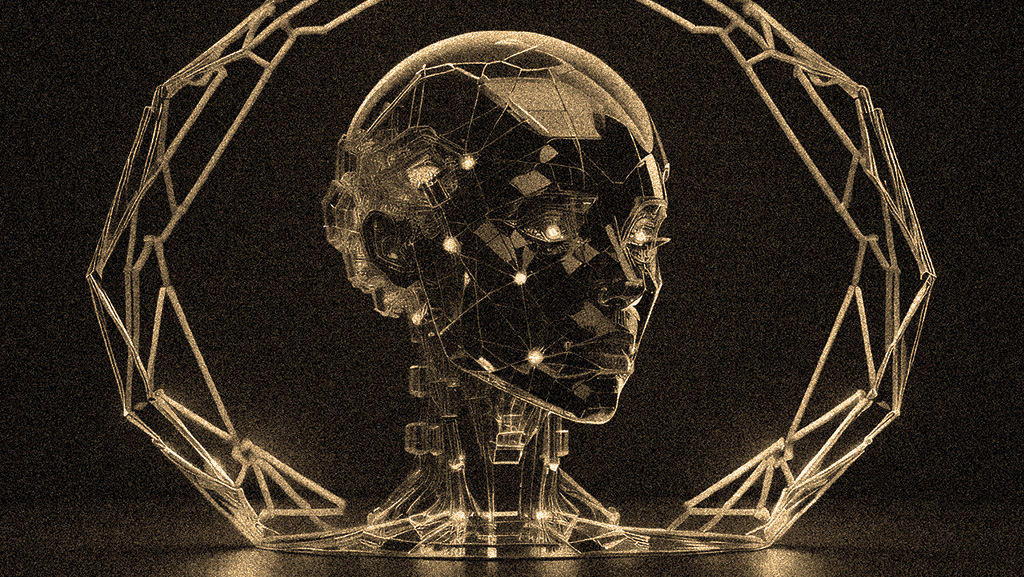How Will AI Transform the NFT Industry?
Periodically, disruptive innovations emerge, and the recent surge in artificial intelligence (AI) bears similarities to the excitement around non-fungible tokens (NFTs). NFTs are digital assets recorded on a blockchain, possessing unique metadata and identifiers that distinguish them from other digital assets.
Given their remarkable growth in 2021, it’s evident that the NFT market harbors substantial untapped potential. The ongoing AI expansion has introduced a new phenomenon to the decentralized finance (DeFi) industry. The amalgamation of blockchain technology and AI empowers developers to optimize smart contracts for generating NFTs. The tech sector’s growth and the rise of AI are set to exert a profound influence on the NFT industry. Here’s how:
What Will Be AI's Influence on the NFT Market?
The NFT (non-fungible token) industry has witnessed exponential growth in recent years, with total NFT sales surpassing a billion USD in the first half of 2021 alone.
NFTs enable creators to monetize their digital content, spanning artwork, music, and video game items, by assigning each piece a unique digital identity. As NFTs gain popularity, artificial intelligence (AI) is poised to reshape the industry in significant ways.
AI-Generated NFTs
One of the most intriguing prospects for the NFT industry is AI-generated NFTs. AI empowers creators to generate endless variations of digital content, each possessing its unique identity. This allows creators to experiment by producing multiple versions or variations of a single piece and selling them as individual NFTs.
AI NFTs are already a reality in the DeFi industry. AI-driven NFTs can generate new content and dynamic experiences autonomously, owing to their learning capabilities.
An example is “Botto,” an AI NFT art. In 2021, an AI algorithm known as “Botto” sold its first collection of six NFTs on SuperRare for $1.3 million. Botto’s style is influenced by renowned artists like Monet and Van Gogh, but it breathes new life into their works.
Enhanced Authentication
Authenticity is a critical concern in the NFT industry, where buyers seek assurance that their purchased NFTs are genuinely unique and authentic. AI can play a substantial role in authenticating NFTs by leveraging blockchain technology to create an immutable ownership record.
Additionally, AI algorithms can scrutinize the content of an NFT to verify its originality and authenticity, making it more challenging for fraudulent NFTs to enter the market.
Like other financial markets, AI can predict token values and market trends in NFTs. This facilitates informed decision-making for traders and collectors. Moreover, AI algorithms can recommend non-AI-generated NFTs to collectors based on their preferences and past acquisitions.Enhanced Curation
As the number of non-fungible tokens on the market continues to surge, it becomes increasingly challenging for buyers to navigate and discover pieces of interest. AI-powered curation tools can assist by analyzing user preferences and behavior to suggest NFTs aligned with their interests.
These tools can also assist developers by recommending keywords and tags to make their NFTs more discoverable to potential buyers. AI can automate various processes in the NFT industry, including price prediction and content creation, enhancing efficiency, saving time, and optimizing the NFT market.Smart Contracts’ Efficiency
Smart contracts, which automate ownership transfers and payment processes for NFTs, are integral to the NFT industry. AI can further streamline this process by developing more intelligent and adaptable smart contracts.
AI algorithms, for instance, can analyze user behavior to determine optimal NFT pricing or adjust smart contract terms based on market conditions.
By merging AI and blockchain technology, the industry can continuously enhance its underlying technological foundations. AI technology not only expands user interactions with NFTs but also offers a more intuitive and adaptive approach to running NFT marketplaces.Personalization
AI can assist buyers in personalizing their NFT experiences by tailoring recommendations and suggestions based on their preferences and behavior. This can create a more engaging and immersive experience, increasing the likelihood of users returning to the platform and acquiring additional NFTs.
Benefits of Converging NFTs and AI
The marriage of AI and the NFT industry presents numerous potential benefits, including:
Enhanced Security
AI can strengthen the security of NFTs by detecting fraudulent NFTs, monitoring transactions, and preventing the creation of fake NFTs. This bolstered security instills confidence in creators and collectors regarding the authenticity and security of their digital assets.
Personalization
AI can generate personalized NFTs based on an owner’s preferences, increasing the uniqueness and value of these assets.
Increased Efficiency
Combining NFTs and AI streamlines the creation process, automating it based on specific criteria such as asset type or owner preferences, resulting in a more efficient and cost-effective process.
New Artistic Possibilities
AI can create digital art forms that are otherwise unattainable using traditional methods. Original and innovative images, animations, and music generated by AI algorithms can be tokenized as NFTs, providing them with unique identities and value.
Facilitated Ownership Transfer
AI can automate the ownership transfer of NFTs through smart contracts, making buying and selling more secure and efficient without requiring intermediaries.
Concerns Surrounding NFTs and AI
While the convergence of NFTs and AI holds transformative potential, it also raises several concerns:
Oversaturation and Devaluation
AI-generated NFTs could flood the market, potentially devaluing traditional art and affecting artists who depend on their work for their livelihood.
Ethical Ownership
Determining the rightful owner of AI-generated art poses ethical challenges, as it’s unclear whether ownership belongs to the AI developer, trainer, or NFT purchaser.
Environmental Impact
The energy-intensive nature of blockchain technology used for NFTs raises environmental concerns, necessitating efforts to minimize the carbon footprint.
Bias and Discrimination
AI-generated art could perpetuate bias and discrimination if algorithms are trained on biased data, reinforcing harmful stereotypes.
Security Risks
NFTs, despite their blockchain-based security, still pose security risks such as theft or hacking, requiring robust security measures.
In conclusion
AI holds the potential to reshape the NFT industry by creating AI-generated NFTs, enhancing authentication, curation, smart contracts, and personalization. While AI and NFTs offer exciting possibilities, they also raise concerns that must be addressed as both technologies continue to evolve.



